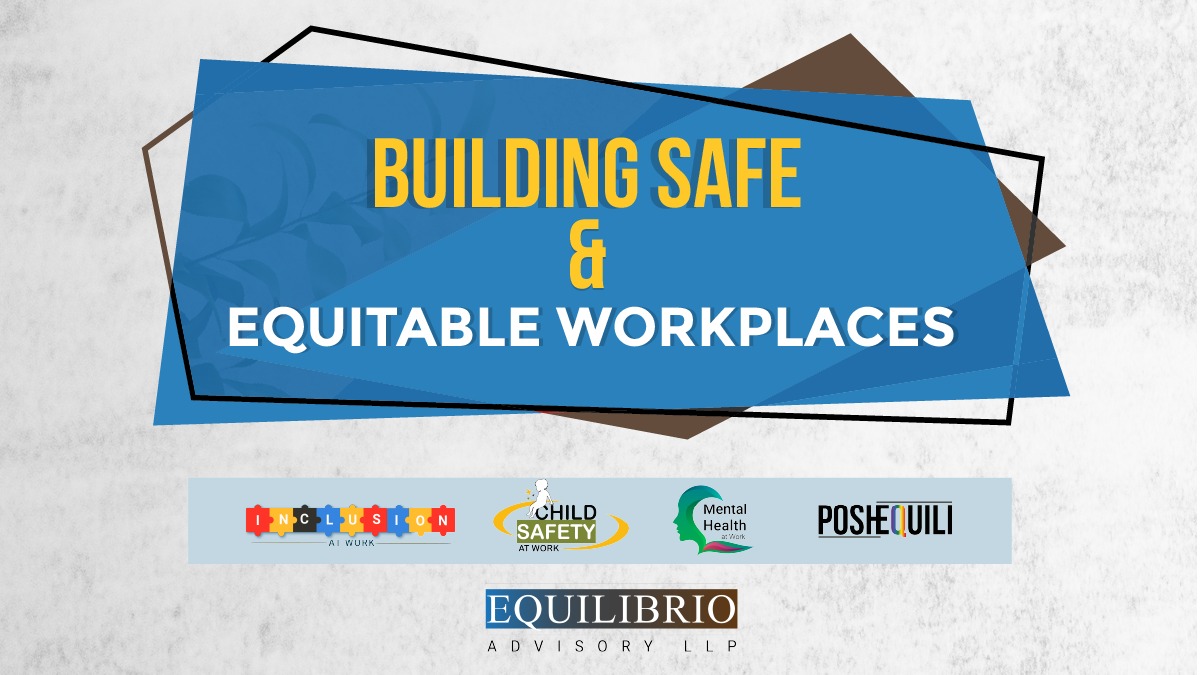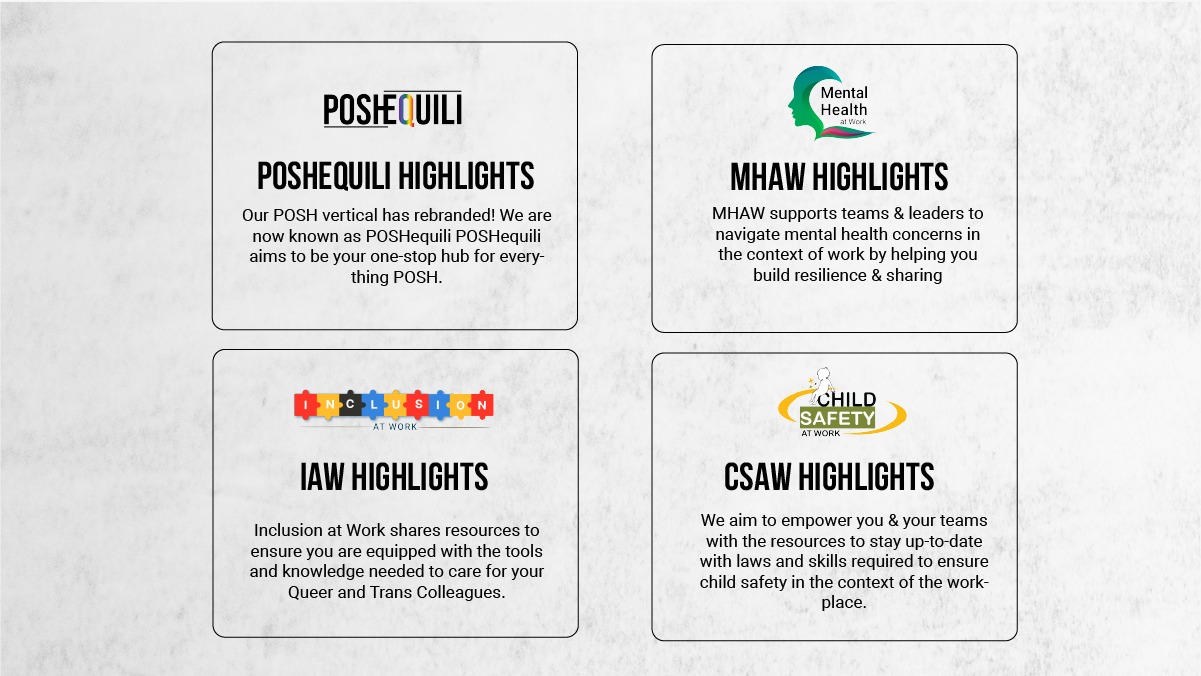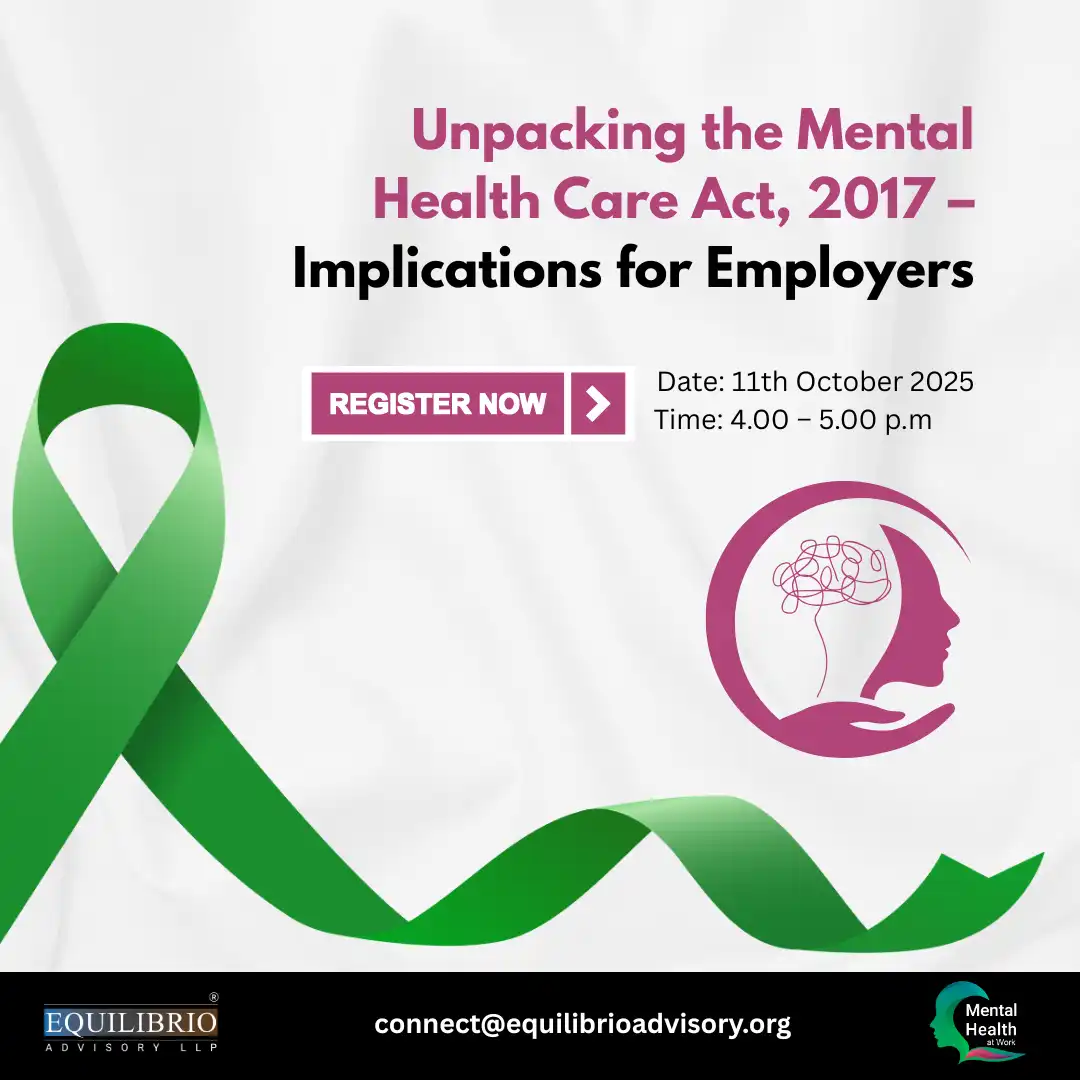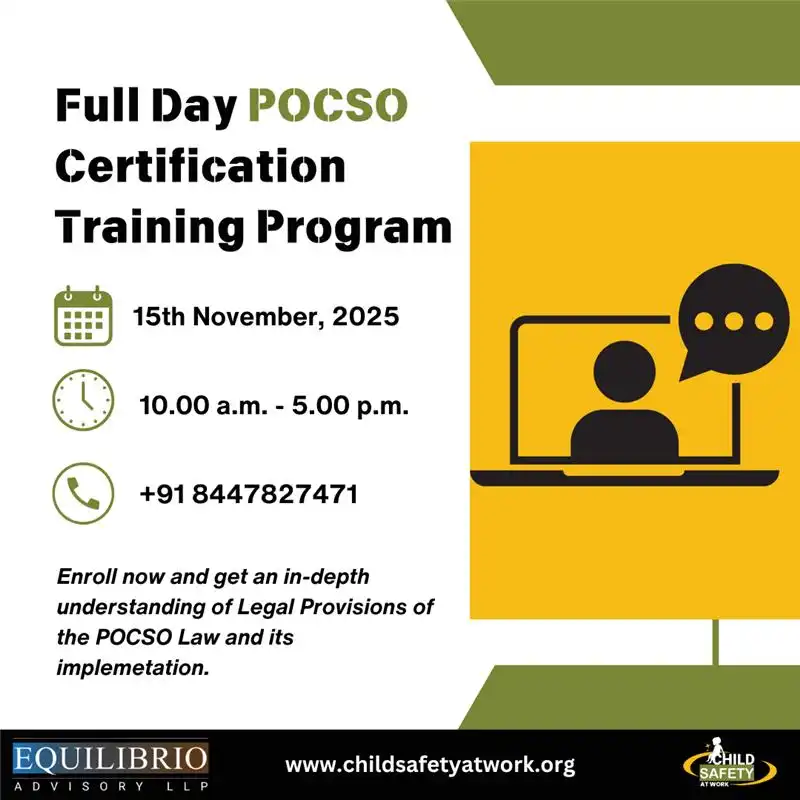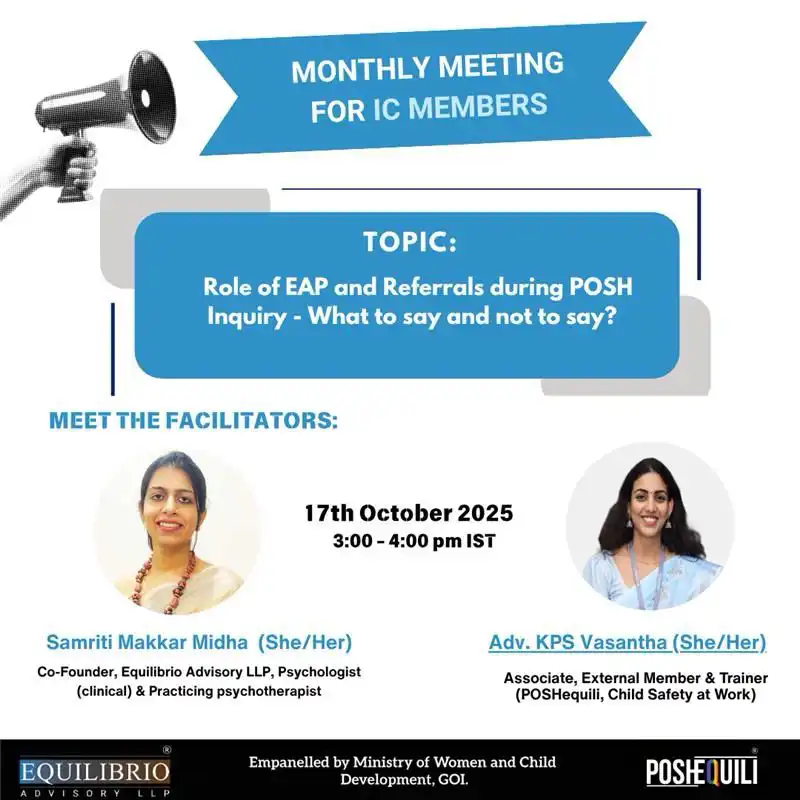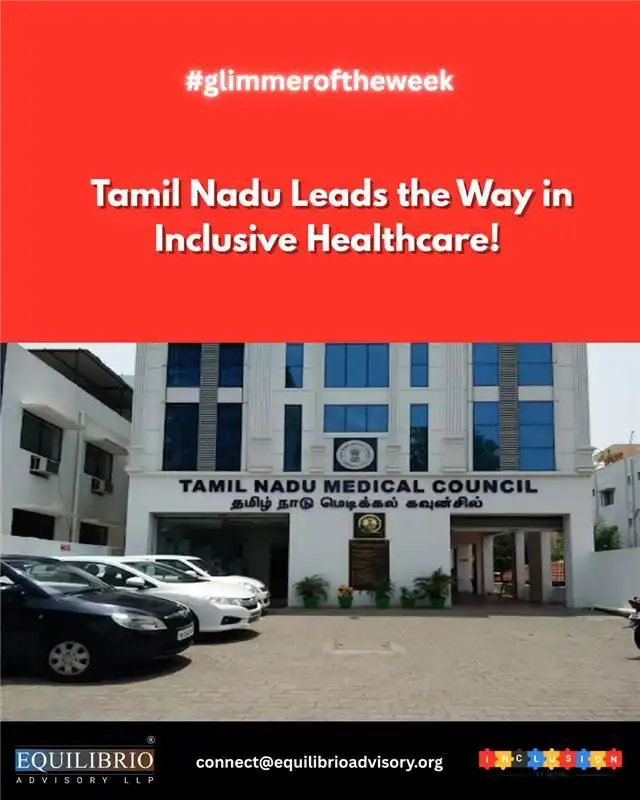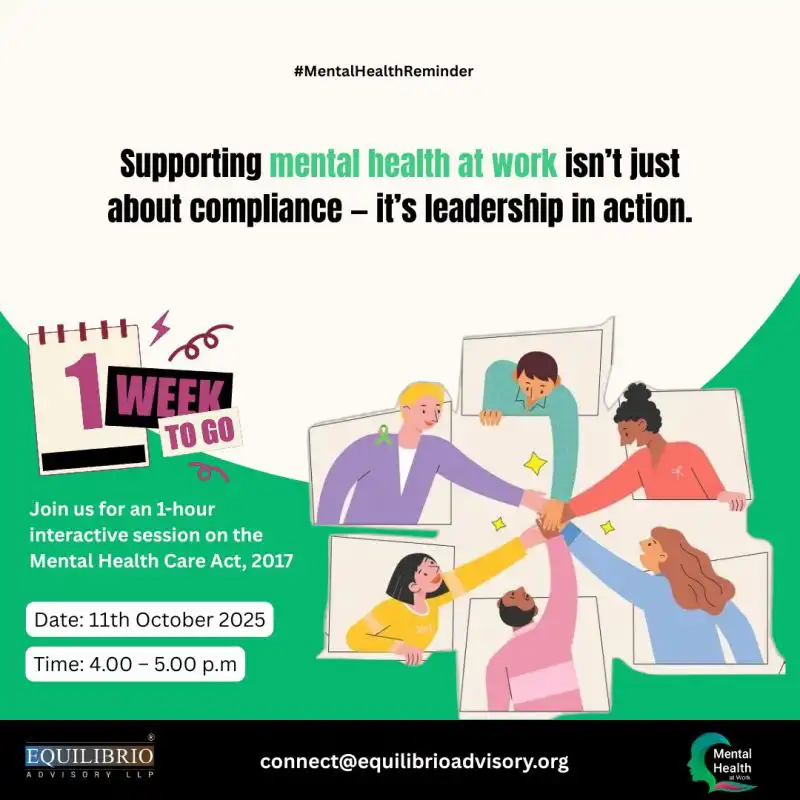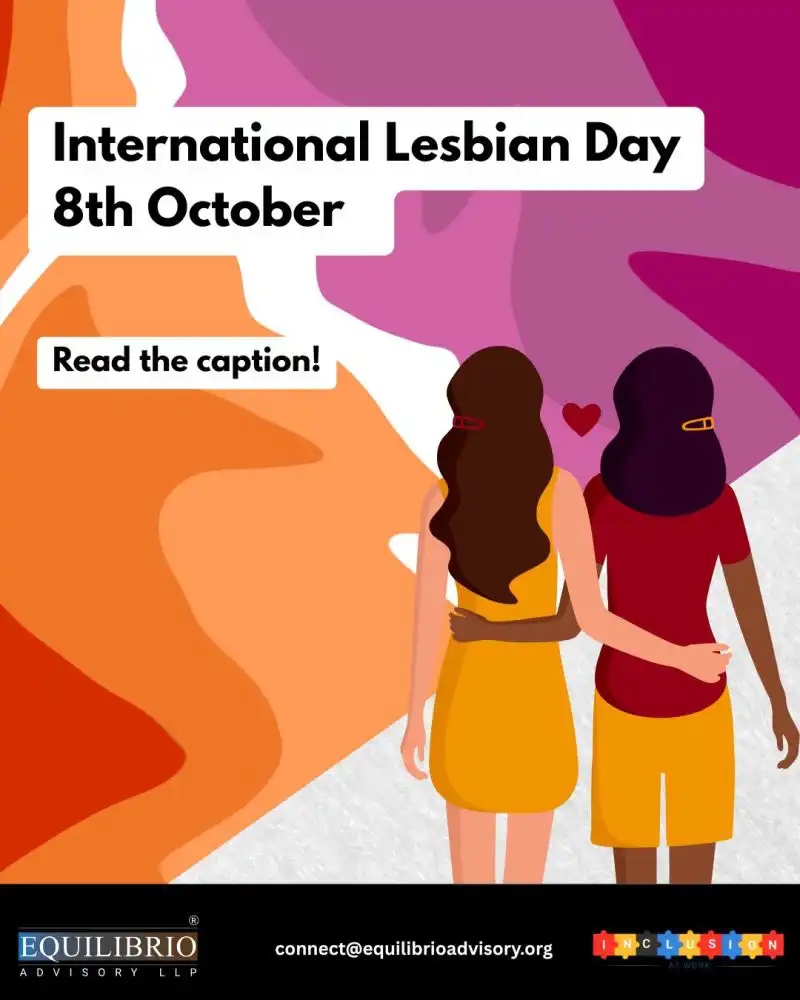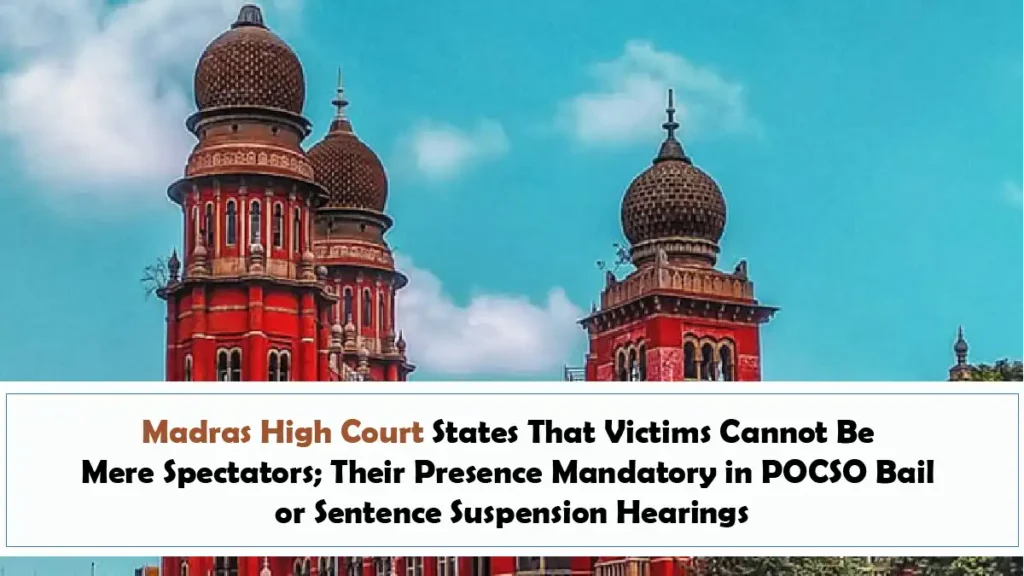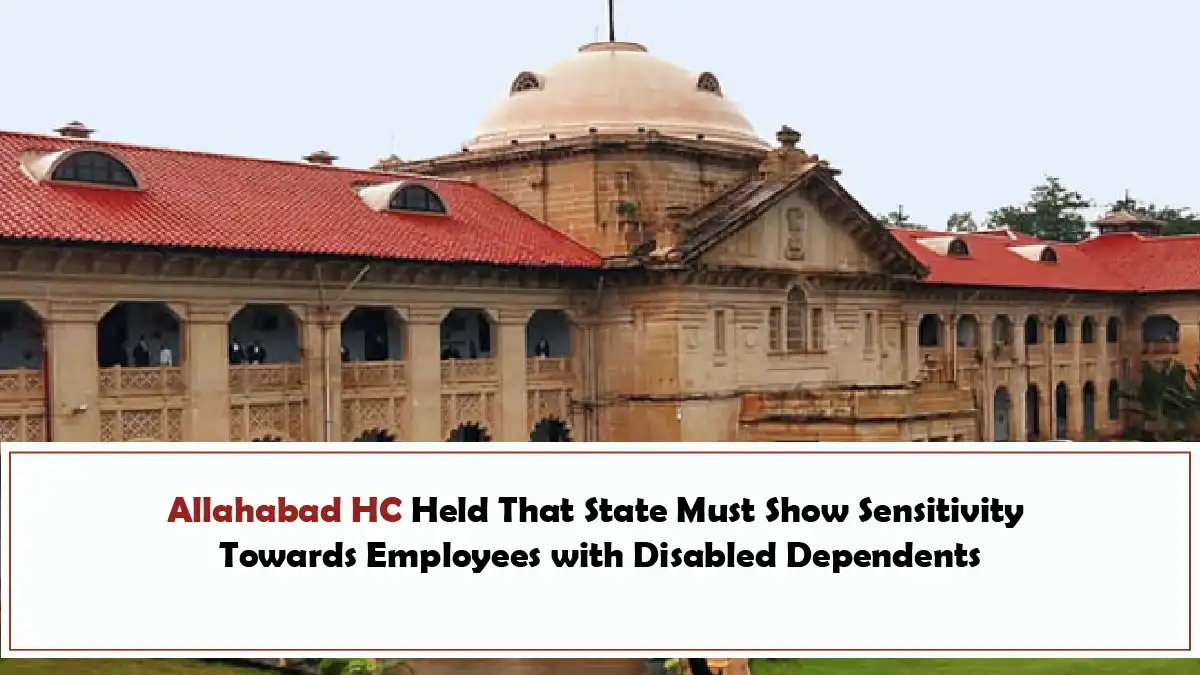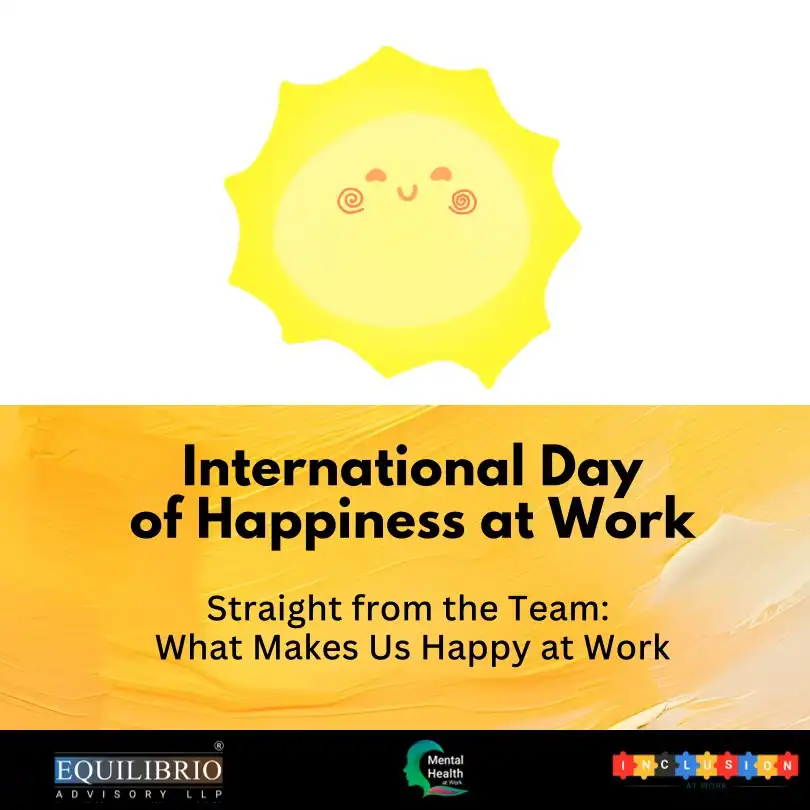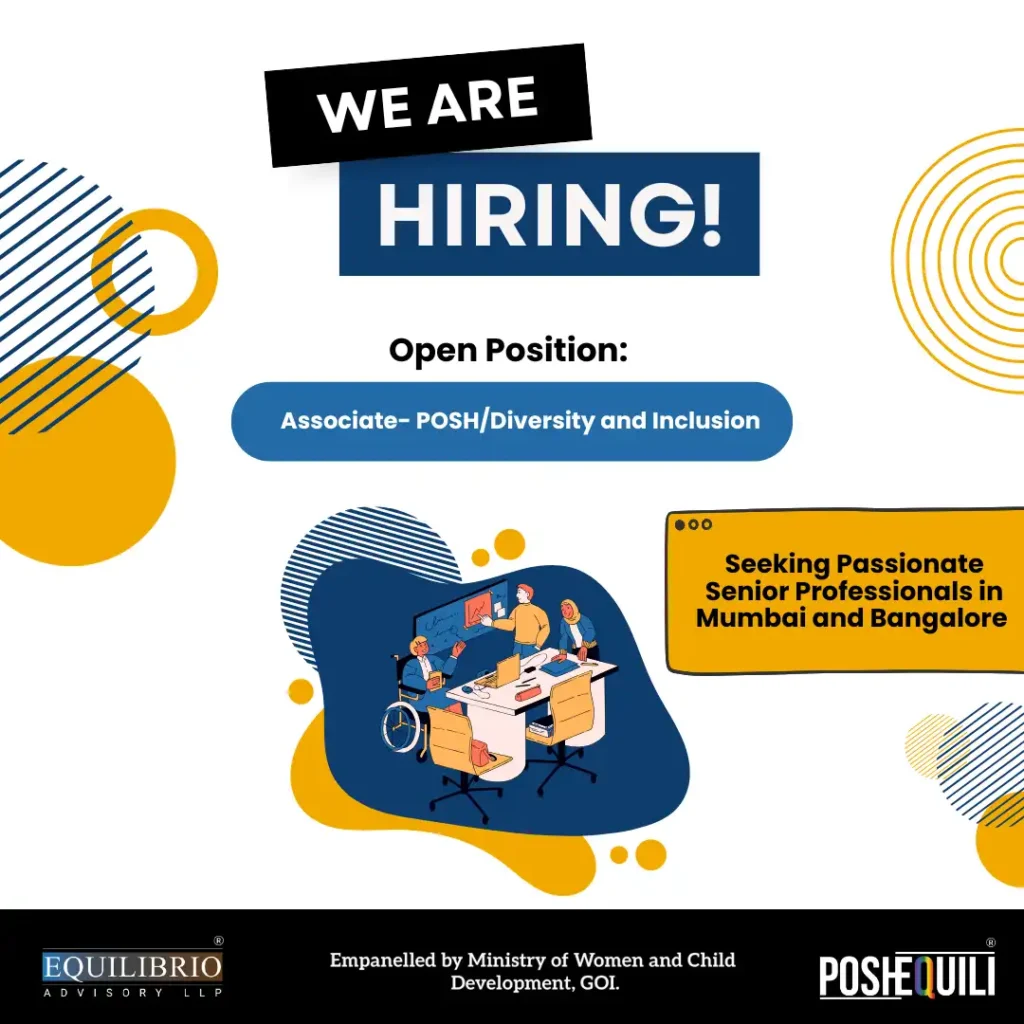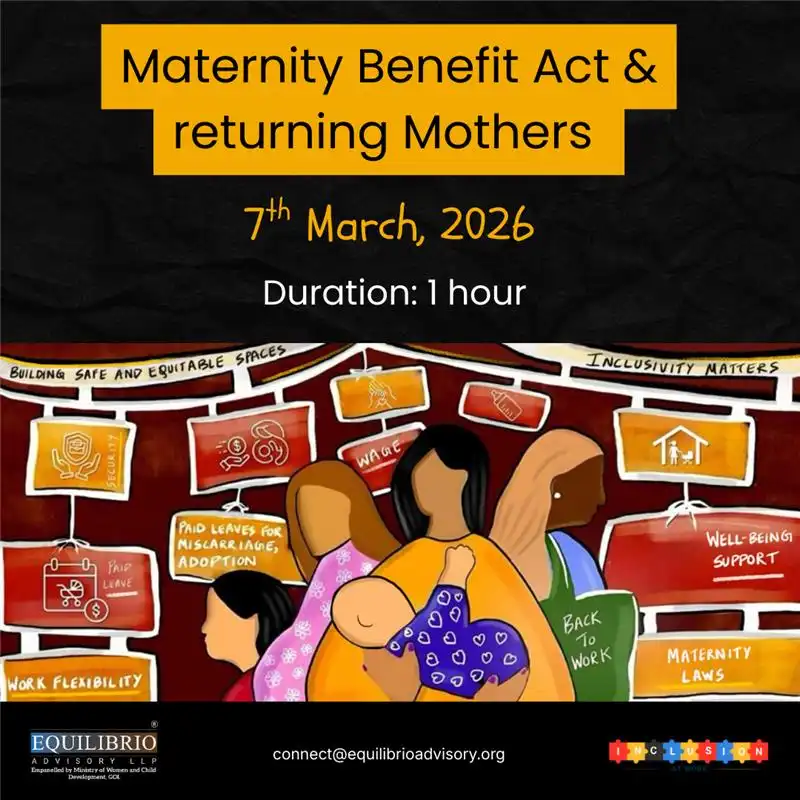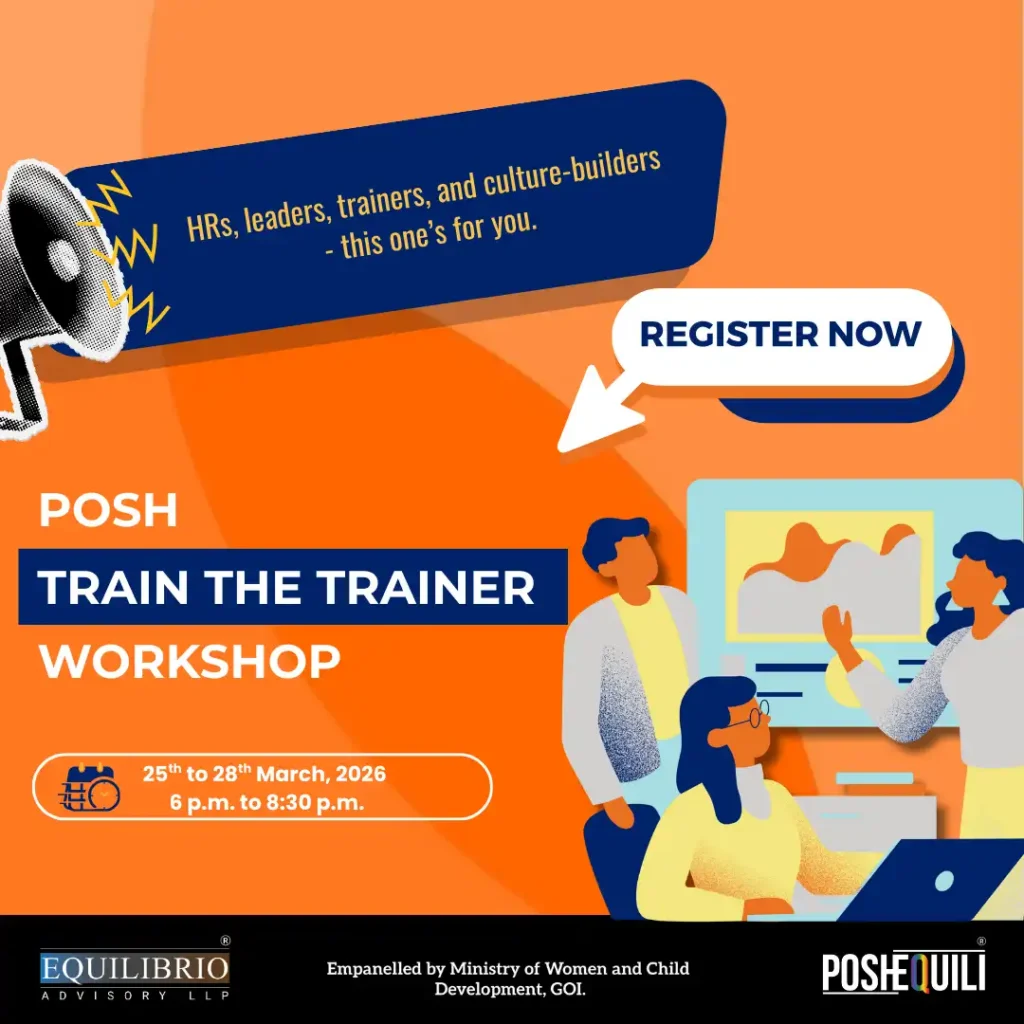The Equilibrio Gazette
A brief buletin for building safe workspaces!
10th October 2025 | Issue No. 102
Upcoming Events
Mark your calendars! In this section, we highlight an upcoming event you won't want to miss.
👧 Child Safety at Work by Equilibrio Advisory LLP invites you to a Full-Day POCSO Certification Training on 15th November 2025, from 10 AM to 5 PM (virtual).
Dive deep into understanding child sexual abuse, the rights protected under the POCSO Act, and practical strategies to create safer spaces for children — all through a blend of legal insights and psychosocial perspectives.
📘 Empower yourself to make a difference — one informed action at a time!
In the Spotlight!
Explore ways to build your knowledge and capacity with our team of in-house experts!
Stay Current!
~ Spotlighting Landmark Judgments since passing of the Law!
I - LEGAL UPDATES
II - Exploring Intersections
Engage with us!
Here's your weekly food for thought through a Fun Fact or Quiz.
Did you know that during the devastating AIDS epidemic of the 1980s, when government officials, doctors, and nurses often discriminated against gay men, lesbians stood firmly by their side? Due to widespread suspicion and stigma, gay men were banned from donating blood, so lesbians organized blood donation camps to help meet this critical need.
Without any formal medical training, lesbians bravely cared for hospitalized patients and arranged hospice care, providing essential support when others turned away. Although the AIDS epidemic was a dark chapter in the history of gay rights, the remarkable solidarity of the lesbian community stands out as a powerful act of allyship.

Have a burning question about POSH? Maybe Mental Health at Work, Child safety or DEI&B strategies? Drop us an email with your query and we would love to answer it, in all seriousness.
Curious Cat:
Are Intellectual Disability and Autism the same, and what does support look like for each?
Answer:
No, Intellectual Disability and Autism are distinct from each other. However, they might be present simultaneously in a person.
Intellectual Disability generally refers to differences in cognitive functioning and adaptive skills. This may mean someone needs support with everyday tasks like communication, learning, or self-care.
Autism is a neurological variance. It is characterized by unique ways of processing information, sensory input, communicating, and interacting socially. It also includes cognitive differences, but it has other traits as well. Persons with autism exist on a spectrum.
Support for both should be person-centered, and based on an understanding of neurodiversity. A concept that celebrates the natural diversity of human brains.
Support should focus on individual strengths and preferences, rather than trying to “fix” or pathologize differences. This might include accessible communication, flexible learning environments, sensory accommodations, and fostering inclusive communities where everyone’s identity is valued and their needs heard.



